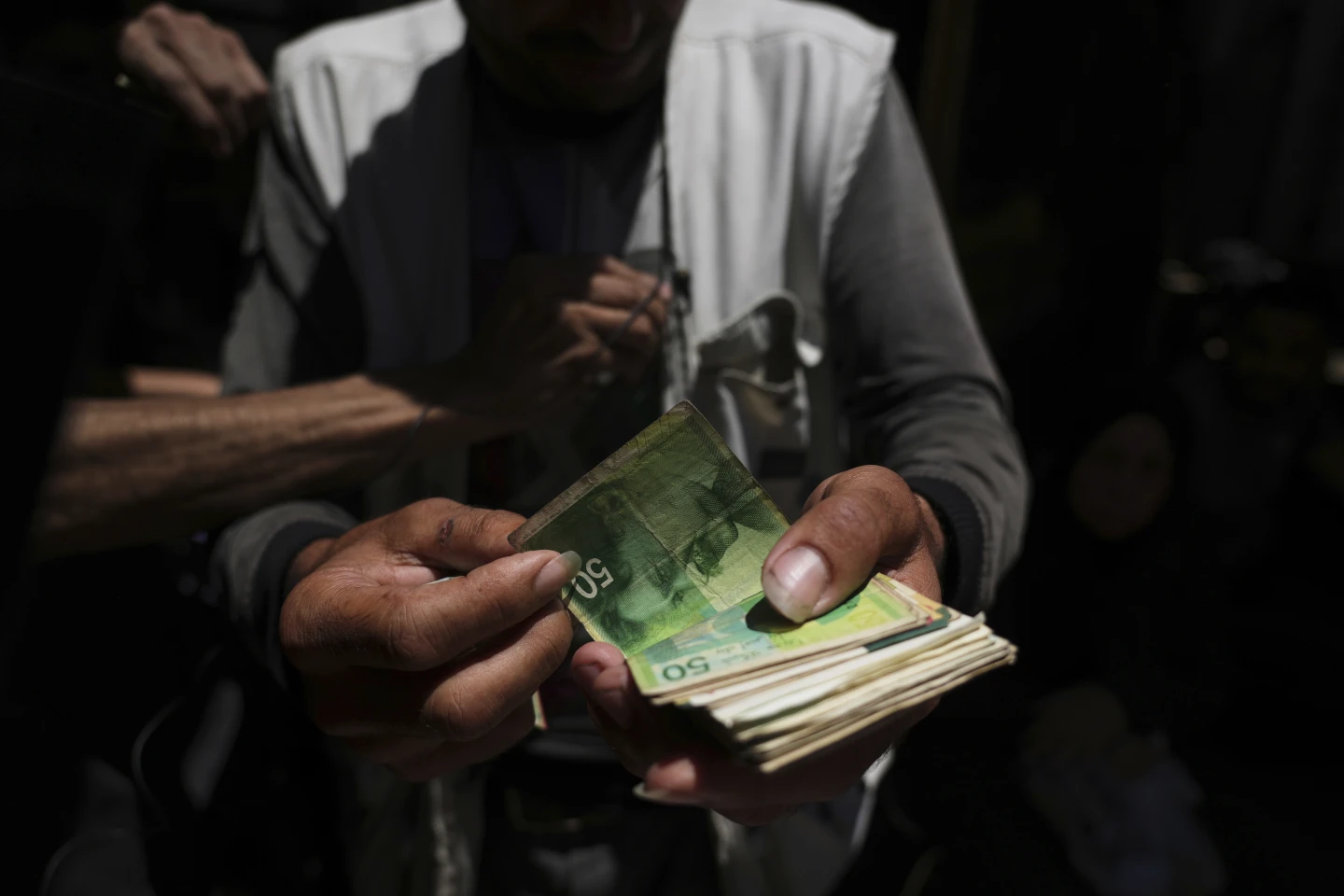Cash has become one of Gaza’s scarcest and most critical resources, with desperate residents paying up to 40% in commissions just to access their own money.
With banks shuttered and ATMs inoperable, Gazans now rely on an unregulated network of cash brokers to obtain funds for daily essentials, reports AP.
“The people are crying blood because of this,” said Ayman al-Dahdouh, a school director in Gaza City. “It’s suffocating us, starving us.”
Inflation, unemployment, and dwindling savings have intensified the crisis. Many families have sold possessions — even gold — just to afford food.
To restrict Hamas financing, Israel blocked the inflow of new cash at the start of the war. Wealthy families withdrew and fled, and foreign suppliers began demanding cash upfront for goods. This collapse of the formal financial system paved the way for cash brokers to thrive.
Where brokers once charged 5%, commissions now reach 40%. A person sending $100 via mobile transfer may receive just $60 in physical cash.
“We lose nearly half of our money just to be able to spend it,” said displaced resident Mohammed Basheer al-Farra.
Palestinians primarily use the Israeli shekel, but fresh banknotes are no longer arriving. Tattered bills are often rejected by merchants, forcing people to spend extra to repair notes — a new cottage industry charging up to $3 per bill.
Merchants now demand pristine 200-shekel notes from suppliers, while most customers only have worn-out 20-shekel bills.
“So the worth of your $50 is zero in the end,” said Shahid Ajjour, who recently tried to shop with damaged notes.
The Palestine Monetary Authority had introduced a digital system, Iburaq, which gained traction but ultimately failed due to Gaza’s cash-only economy.
Experts say the cash trade now operates in a shadowy space, with little clarity over who controls it. “It’s like a mafia,” said Omar Shabaan of Gaza’s Palthink Institute.
Those hoarding and distributing cash are often the same figures selling overpriced food and essentials. Once families exhaust their cash, they must rely on aid distribution centres.
“This is the only way I can feed my family,” said al-Farra, now seeking flour and pasta from aid trucks.


